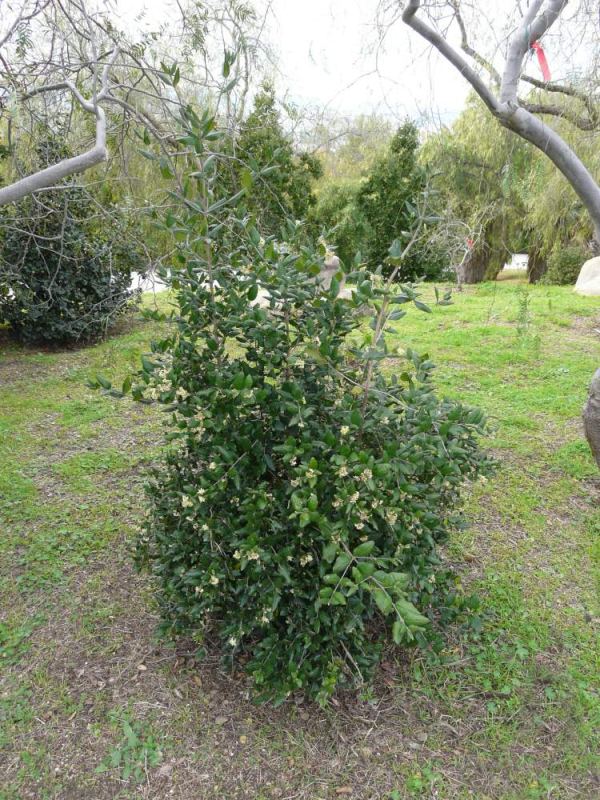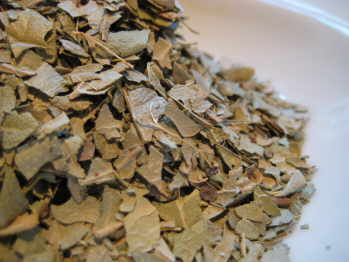 Peumus
boldus. P. boldo Boldo Family: Monimiaceae
Peumus
boldus. P. boldo Boldo Family: Monimiaceae
Peumus boldus, the only species in the genus Peumus, is commonly known as Boldo (from the Mapudungun name folo). This tree of the family Monimiaceae is natively endemic to the central region of Chile, occurring from 33° to 40° Southern latitude. Boldo has also been introduced to Europe and North Africa, though it is not often seen outside botanical gardens.
PART USED: Leaves, bark for extraction of alkaloids
TASTE: Bitter, aromatic ODOR: Camphoraceous, lemony
ACTIONS
GROUP: Hepatics and Cholagogues
1 . Cholagogue.[1] Liver stimulant.[1,3]
2 . Urinary antiseptic and demulcent.[1,2] Diuretic.[1,3]
3 . Sedative.[1]
INDICATIONS
1. Hepatic insufficiency. Liver or gall bladder pain.[1,2] Gallstones.[1,2,3]
2. Urinary tract infections. Cystitis.[1,2,3] Kidney stones.
3. Dyspepsia
4. Rheumatic conditions.[1,2]
5. Aid to slimming.[3]
SPECIFIC INDICATIONS: Cholelithiasis with pain.[1]
COMBINATIONS
- Gall stones or hepatic disease- with Barberry, Fringe-tree bark.
PREPARATIONS 3X/day
NOTE -Low dosage.
Dried Leaves 60-200 mg.[1]
Infusion[1] 60-200 mg in 0.12-4 ml water.
Fluid Extract 1:1 in 45% alcohol 0.1-0.3 ml.[1,2] 0.5-2 ml.[3]
Fluid Extract 1:2 in 60% alcohol.[4]
Tincture 1:10 in 60% alcohol 0.5-2 ml.[1,2]
